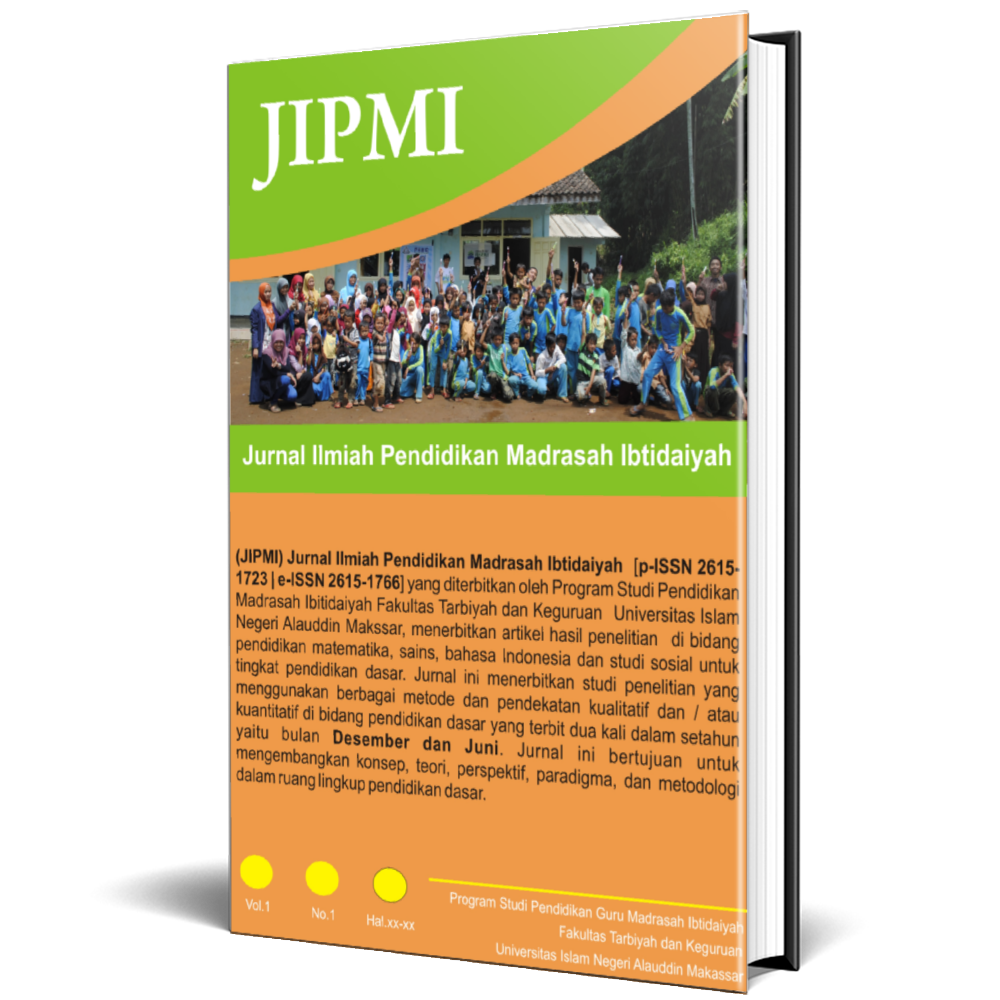PENGEMBANGAN KECERDASAN SPIRITUAL PESERTA DIDIK DI SDIT WIHDATUL UMMAH MAKASSAR
Main Article Content
Abstract
The main problem in this study is the development of students' spiritual intelligence in SDIT
Wihdatul Ummah Makassar. This study aims: 1) to know the methods of developing spiritual
intelligence of students, 2) to know the implementation of developing spiritual intelligence in
extracurricular activities of students, 3) to know the various supporting and inhibiting factors for
developing spiritual intelligence of students and the solution, 4) find out the results of developing the
spiritual intelligence of students. This research is a qualitative research conducted in the form of a case
study. The research location is SDIT Wihdatul Ummah Makassar. Furthermore, the data collection
methods used are observation, interview, documentation and reference tracking. Furthermore, data
processing and analysis techniques are carried out by means of data reduction, data presentation, and
conclusion drawing. The results of this study indicate that: 1) The method of developing spiritual
intelligence is applied by teachers in SDIT Wihdatul Ummah Makassar, namely the lecture method,
the method of spiritual stories, the method of involving students in religious rituals, the method of
giving assignments and the question and answer method. 2) Implementation of the development of spiritual intelligence of students in extracurricular activities at SDIT Wihdatul Makassar, namely
tarbiyat al-aula>d, tah}fi>z} al-Qur'a>n, MABIT (Night to build faith and piety), and scouts . 3)
Factors supporting the development of students' spiritual intelligence in SDIT Wihdatul Ummah
Makassar are teacher's abilities and teacher's knowledge. While the inhibiting factors are the
environment, different educational patterns and lack of response from parents of students. 4) The
results of the development of spiritual intelligence are able to have a positive impact on students such
as the understanding of the faith they have gotten from the start, , creating a rabbani attitude towards
students, fostering a level of self-awareness , fostering a sense of caring among others, able to foster the
creativity of participants in the effort to develop their own potential, and able to comply with the
regulations in school.
Article Details

This work is licensed under a Creative Commons Attribution-NonCommercial-ShareAlike 4.0 International License.

